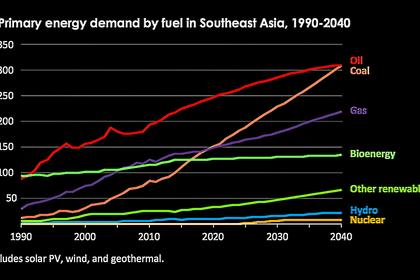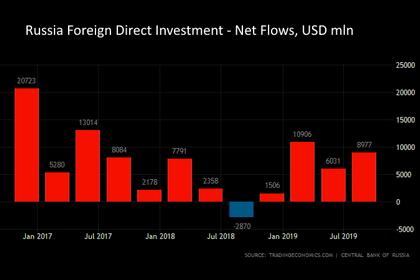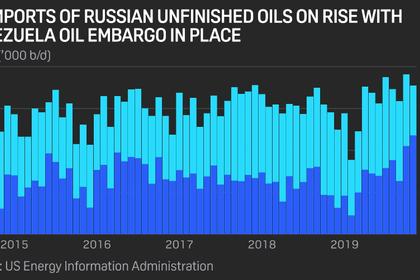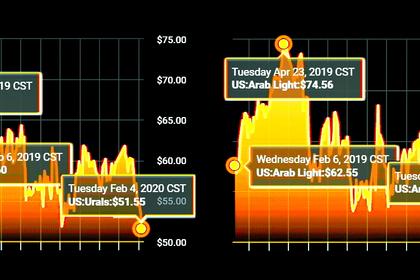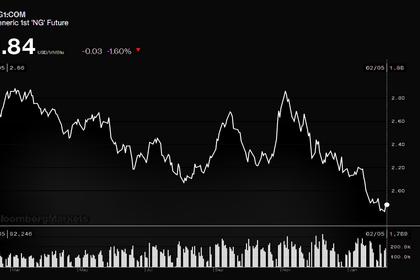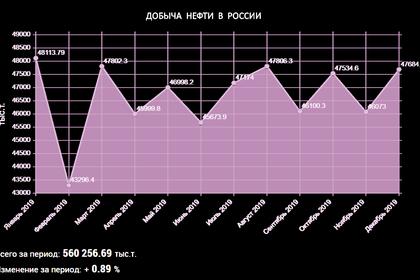
RUSSIA'S ANTARCTIC OIL GAS POTENTIAL
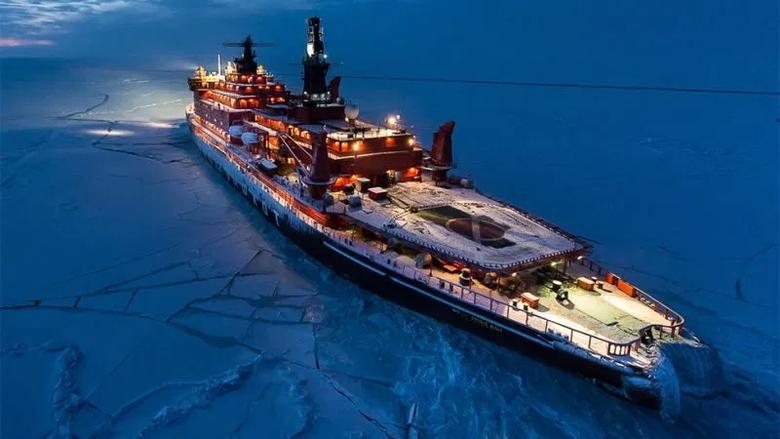
PLATTS - 21 Feb 2020 - A Russian move to size up offshore oil and gas potential in the Antarctic may not signal the start of a rush to develop the world's last great wilderness, but it does threaten to unravel a fragile political compromise that has protected the region for the last 60 years.
Russia's state-run geological surveyor Rosgeologia shot 4,400 km of new seismic in the Riiser-Larsen Sea, off the coast of Antarctic's Queen Maud Land earlier this year, it announced last week. The first seismic survey in the area by Russia since the late 1990s, Rosgeologia said the purpose was to assess the offshore oil and gas potential of the area using the latest technology.
Unlike the Arctic, which is open to hydrocarbon exploration, the Antarctic's mineral resources, including oil and gas, are protected by amendments to the 1959 Antarctic Treaty, to which Russia is a signatory.
With the treaty setting aside Antarctica for only non-military scientific research, Russia's admission that it is mapping fossil fuel deposits in the region will likely raise diplomatic and environmental heckles alike.
"The Antarctic has always been a place where countries can put aside their political differences in the interests of peace and science and so to endanger that would be extremely unfortunate at a time when there is so much geopolitical conflict," said Claire Christian, the executive director of the Antarctic and Southern Ocean Coalition (ASOC), which represents the global environmental community at the Antarctic Treaty.
The treaty's ban on any activity relating to mineral resources other than scientific research has provided a convenient loophole for geological surveys in the Antarctic in the past.
Indeed, a number of countries have been mapping the underlying structure of Antarctica and its adjacent waters with geological surveys for decades. But so far, none have explicitly linked the work to a hunt for oil and gas. As a result, Rosgeologia's bold admission could set Moscow at odds with the treaty's 53 other signatories.
An official at the Antarctic Treaty Secretariat said Russia had not informed the Secretariat of its recent hydrocarbon exploration but said there is no commitment to do so under the treaty statues.
Political balancing act
According to Rosgeologia, Russian exploration work offshore Antarctica conducted since the late 1970s already indicates potential oil and gas reserves of 70 billion mt, or around 513 billion barrels. It's unclear, however, how much could be economically recoverable.
Despite speculation over oil riches in the little-explored Antarctic, the region's resource potential is still unproven. A handful of shallow stratigraphic boreholes and extensive seismic work has not yet -- officially at least -- turned up strong signs of major oil potential.
A 1992 study by US Geological Survey expert John Kingston concluded that the Antarctic's total recoverable petroleum resources could be around 19 billion barrels of oil and 106 Tcf of gas based on "normal recovery" conditions. Given the technical difficulties for oil projects in the remote, ice-bound Antarctic environment, however, it estimated that commercial-scale fields of at least 500 million barrels would likely total only 6 billion barrels and 32 Tcf.
Previous geological surveys have focused on the Ross and Weddell Seas but Russia's latest work off Queen Maud Land is in an area claimed by Norway since 1939. Norway is one of seven countries that have territorial claims in the Antarctic but have agreed to sideline squabbles over sovereignty under the treaty's political compromise. Moscow, like the US, has not made a claim but has reserved the right to do so.
Rosgeologia did not respond to requests for further details on the latest campaign or whether the work was commissioned by the government or oil companies.
Norway's foreign affairs ministry declined to comment on Rosgeologia's latest survey or say if it intends to raise the issue with the Antarctic Treaty member countries at their next annual meeting.
Global warming
Russia has already been at the forefront of polar exploration in recent years as rising global temperatures and melting ice sheets ease access. In 2009, Moscow sparked a diplomatic row by planting a flag on the seafloor under the Arctic where nearly a quarter of the world's undiscovered oil and gas is thought to lie. Since then, Russia's state-run oil giant Rosneft has mapped extensive 3D seismic in the Arctic waters of the Kara and Pechora Seas as part of a push to exploit retreating ice levels and boost its Arctic oil and gas resources.
While Western oil majors have largely pulled back from Arctic exploration, Russia's ongoing drive for polar expansion is only likely to fuel tensions over climate change from burning of fossil fuels.
The world's polar regions are highly vulnerable to warming. While global temperatures have risen by 1 C since pre-industrial levels, the Antarctic Peninsula has seen an increase of more than 2.5 C, greater than anywhere else in the Southern Hemisphere, according to a briefing paper last year by Imperial Colleges' Grantham Institute.
"The Antarctic is becoming more accessible, it is easier to get to it, the international presence is expanding there. There are challenges that we must find solutions to together," Jane Rumble, the UK's Head of the Polar Regions Department, told Russia's state-run RIA Novosti news agency last week.
Rumble, who was speaking following talks over Antarctic Treaty in Moscow with the Russian foreign ministry, said that "Russian colleagues and I have similar views on the need for effective management of international activities in the Antarctic."
Playing the long game
Under the treaty's current Protocol on Environmental Protection, Russia would be in clear breach of the protocol if it followed up the seismic with any exploratory drilling.
But in 2048, the ban on mineral activity comes up for possible renewal, plunging the future of the continent's ice-bound resources into uncertainty. As things stand, however, ASOC's Christian sees few prospects of the mineral ban being lifted given that a number of treaty members have already said they would oppose changes to the status quo.
Posturing with oil exploration activity well ahead of this deadline may be one rationale for Russia's new-found confidence in voicing an interest in the Antarctic's oil and gas potential. With oil prices hovering around $60/b, a growing global backlash against fossil fuels and ample existing reserves of oil and gas in less hostile parts in the world, it's not easy to understand Russia's timing.
Rumble, for one, is confident that the odds are stacked against a further push into Antarctic oil and gas activity any time soon.
"Now and in the future, all countries participating in the treaty will have to come to an agreement to start mining mineral resources, and I do not see such a prospect in the near future simply because it is extremely costly to do this in Antarctica," she said.
The 54 signatories to the Antarctic Treaty are due to discuss the progress of accord at the next annual meeting in Helsinki, Finland at the end of May.
-----
Earlier:
